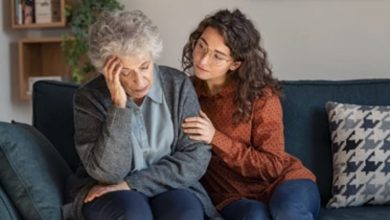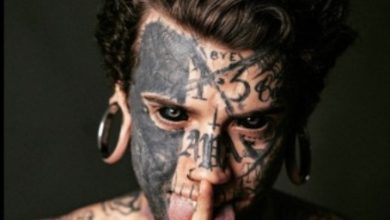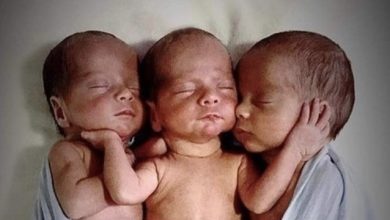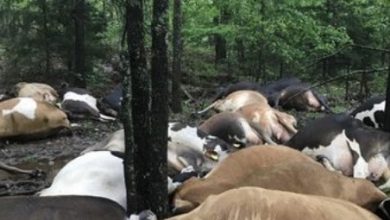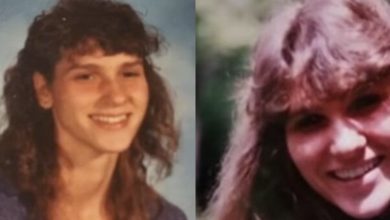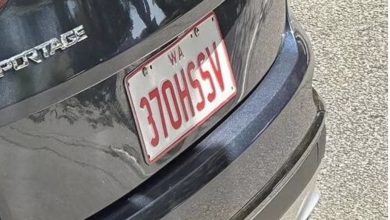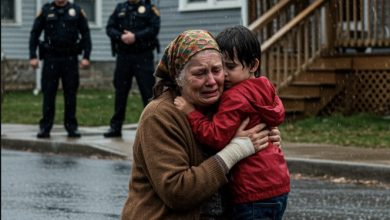Ashamed of His Mom’s Appearance, He Left Her Behind — But Life Taught Him a Painful Lesson
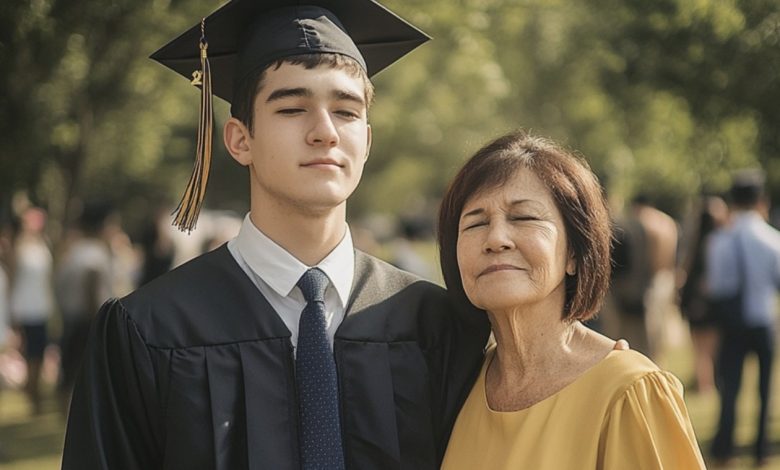
I grew up knowing my son Derek only as a quiet boy who never talked about his family. When his classmates would compare stories about their parents, Derek would glance down at his shoes and change the subject. Invitations to his house were always met with vague excuses: “My mom’s super strict about visitors,” or “She’s not feeling well today.” In reality, Derek was hiding something he was ashamed of, and I was the reason why.
My name is Gail Ryder. Ever since I rescued Derek from a snarling dog in the park when he was three, I have lived with a reminder of that day every time I looked in the mirror. The dog attack left my left eye gone and half of my face marked by scars. Friends and neighbors learned to look past my wounds and see the woman behind them, someone who loved her only child with all her heart. But my son saw only the monster, and I couldn’t blame him at such a young age. It was the cruel world outside our front door that painted me as frightening.
When Derek started school, I tried to walk him to the classroom door like any mother would. He squeezed my hand tight, then tore away and whispered, “Mom, go wait by the car.” His voice shook with embarrassment. Other mothers glanced at me through their sunglasses, their eyes betraying a flash of fear. I felt their pity slice through me. At home that afternoon, Derek’s small shout still stung. “You’re a freak! I heard Jenny’s mom talking about you. I don’t want everyone to think I’m a freak, too!” Tears streamed down my smooth cheek; I didn’t want to cry in front of him, but I couldn’t hold back. I backed away, swallowed my hurt, and told him from then on I would wait in the car.
He was only in first grade then. I thought he’d grow out of it. I kept my scars hidden behind dark glasses, learned to smile without showing how my face felt tight and sore. I sent Derek to school with kisses and waved until he vanished inside. When he got home, my arms were always open. He needed love most of all, and I never doubted he loved me, too, in his own way.
But as the years passed, Derek’s hiding grew more intense. He never invited friends over. He always had an excuse ready: a mother who worried too much about noise, or a father in the picture who disapproved of sleepovers. He began a series of girlfriends in high school, each one kept at arm’s length from our home. “My mom is very religious,” he’d tell them. “She wouldn’t approve of us spending time alone.” He lied with such ease that I wondered if he believed his own stories. He was ashamed of the woman who had given him life.
When Derek’s final year of high school arrived, he surprised me by being named valedictorian. I was bursting with pride, and so was his principal. Mr. Thornton patted Derek on the back after the awards assembly. “So where’s your mother?” he asked cheerfully. “I’d love to shake her hand and thank her for raising such a fine young man.” Derek’s face went pale. His voice shook as he explained, “Actually, sir, my mom can’t come to the ceremony. She’s… busy that day.” The principal’s smile faltered, but he said, “Well, you give her my congratulations, won’t you?” and Derek nodded, relief flooding his face as Mr. Thornton turned back to congratulate another student.
That night, Derek sat at the kitchen table with his graduation cap in his hands. I stood across from him, my heart full of joy and dread. “I’m so proud of you,” I said quietly. “You deserve a celebration.” He shifted uncomfortably, eyes avoiding mine. “Mom… about graduation…” His words trailed off. I braced myself. “I… I don’t want you there.” The first time he ever told me those words directly. The knife twisted in my chest. “I’ve spent my whole life hiding you. I can’t have you on the most important day of my life showing your face.” He sounded ashamed, disgusted—worse than any child scolding a parent.
I nodded as though I understood, though my heart felt broken in two. Two weeks later, Derek moved across the country for college. He never looked back.
After he left, I cried every day for months. I slipped into a routine of grief and solitude. I didn’t have many friends, but the few who saw past my scars offered comfort. I still kept my dark glasses, not out of fear, but out of habit. The phone stopped ringing with calls from my son. No letters, no postcards, no text messages. Nothing.
Ten years passed in a blur of quiet days and lonely nights. Then one afternoon, I received a call from a lawyer in my hometown: “Mrs. Ryder? I’m calling about your son, Derek. I’m sorry to inform you, but he passed away in California last week. He didn’t have any close friends there, and no arrangements were made. We have handled his funeral here according to his wishes. He also left you his house and the remainder of his estate.” I couldn’t breathe. My voice shook. “Are you sure? My son… he’s…” My words caught in my throat. He was gone.
A week later, I stood in a small chapel where a handful of friends and neighbors paid their respects at Derek’s service. They spoke softly about the quiet, brilliant young man he’d become, and I stood there invisible behind my sunglasses, tears sliding down my good cheek. I never told them I was his mother. I didn’t correct them when they assumed I was an aunt or an old family friend. My pride would have swollen and burst if I said, “He was ashamed of me, so we grew apart, and now he’s gone.” The words were too painful.
After the service, I met the lawyer, Mr. Arlington, in his tidy office. He passed me two envelopes and a set of keys. “Your son left you everything: the house, approximately seven hundred thousand dollars, and the savings he had.” I held the envelopes in my hand, my skin cold. One was the deed to my home, the other a letter. “He also left you a note,” the lawyer said. “He said he hoped you would accept his gift and forgive him for his mistakes.”
That night, I sat in my modest living room, the letter trembling in my hand. My house was quiet, the walls lined with photos of my lost son. I slid the envelope open and read:
Mother,
I’m sorry you had to wait so long to read this. I was ashamed of what people might think if they saw you. I told lies to keep your face hidden and your heart safe. But my lies only showed how weak I was.
I graduated without you, and I left for college without looking back. I wish now I had been brave enough to let everyone see how beautiful you were, not only in the face but in the love you gave me every day.
I hope this money and the house can help you live the life you deserve. I wish I’d told you sooner that I was proud to be your son. I’m sorry I never said it in person.
Love always,
Derek
My body shook as I sat down on the couch. My son, the boy who hid me, had left these words behind. He had come to understand what I had always hoped he would: that my love was stronger than my scars, that a mother’s love is not defined by her appearance but by her sacrifice.
That night, I removed my glasses and looked in the mirror for the first time in years. My left cheek was still marked, my eye gone, but I saw a different reflection: a mother who had given everything for her child. I whispered into the silent room, “I forgive you, my son. I’m so proud of you.”
Over the next months, I moved back into the house my son had left me. I painted the walls a soft yellow, let the sunlight in through open windows. I found an old photograph of Derek as a little boy, hugging me without fear, and put it on my desk. Each time I passed, I would touch the frame and remember his smile.
I used the money to travel a little—to see places Derek had always talked about. I walked on sandy beaches and sat beside mountain lakes. I let myself breathe deeply and laugh at strangers’ jokes. For the first time in a decade, I felt free of the shame that had weighed me down.
Most importantly, I began volunteering at a children’s hospital. I met mothers who, like me, had scars from surgeries or accidents. I talked to them, shared my story, and let them cry on my shoulder. I told the young patients about my son, how he finally understood. And I told them that a mother’s love is something no scar can diminish.
Years later, when people asked me about Derek, I no longer hid. I would smile with pride and say, “He was my boy. He was the bravest person I ever knew, and I will always love him.” And I meant every word.
What can we learn from our tale? Children may be embarrassed by their parents, but time and love can change their hearts. Regret can be heavy, but forgiveness sets us free. And scars—whether on the face or on the soul—tell stories of survival, sacrifice, and boundless love.

